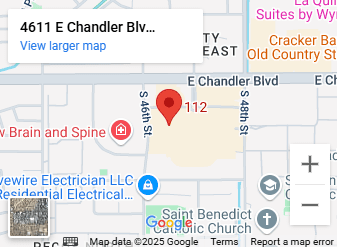What Should I Consider When Reading Reviews About Phoenix Business Brokerage Services?

Phoenix entrepreneurs and business owners rely on online feedback to choose the right broker, but up to 40% of posted testimonials can be inflated or fabricated, skewing decision-making before you even schedule an introductory call.
In this guide, you will learn how to distinguish genuine Phoenix business brokerage reviews from deceptive feedback by examining authenticity criteria, spotting red flags, verifying credentials, analyzing client references, understanding fee structures, and contextualizing reviews within local market dynamics.
We’ll explore:
- The critical importance of review authenticity for risk mitigation and informed selection.
- Credibility signals such as specificity, verifiable facts, balance, and cross-platform consistency.
- Red flags that warn of generic language, unrealistic promises, pressure tactics, and opaque fees.
- Methods to verify credentials, assess experience, and evaluate real client testimonials.
- How brokerage fee structures shape satisfaction and how Phoenix market trends influence review reliability.
With these insights, you’ll navigate Phoenix brokerage service feedback confidently, ensuring your next merger, acquisition, or sale aligns with a trusted, qualified advisor.
Ensuring Authentic Phoenix Business Broker Reviews

Review authenticity forms the foundation for selecting a broker whose expertise and integrity match your unique business needs by reducing information asymmetry and reinforcing decision confidence. Genuine customer accounts convey accurate details about negotiation skills, local market understanding, and transaction outcomes, directly impacting your deal’s efficiency and success.
How Do Authentic Reviews Impact Your Brokerage Selection?
Authentic reviews highlight real-life deal structures, challenges overcame, and negotiated terms, guiding you toward brokers who demonstrate proven negotiation acumen, industry specialization, and transparent communication. For example, sellers referencing a broker’s effective valuation of a manufacturing business provide insight you cannot glean from basic credentials alone, enhancing your ability to align with a professional whose skills match your sector.
What Risks Arise from Relying on Fake or Unverified Reviews?
Relying on fabricated testimonials can lead to:
- Misaligned expectations when promises of rapid sales or specific valuations prove unfounded.
- Financial losses through unexpected or underperforming marketing programs.
- Time wasted on brokers lacking local network connections, delaying deal closure.
By avoiding unverified feedback, you shield your transaction process from costly surprises and preserve negotiation leverage.
How Does the Phoenix Market Influence Review Reliability?
Phoenix’s dynamic small-business ecosystem—with a projected 8.5% industry growth through 2030—drives intense brokerage competition, incentivizing some firms to manipulate online reviews. Brokers well-versed in local sectors like hospitality, construction, or healthcare demonstrate greater credibility, so cross-referencing feedback against market-specific performance metrics ensures review reliability reflects genuine expertise.
Phoenix Business Brokerage Industry Growth
The business brokerage industry in the U.S. is projected to grow, with Phoenix potentially outpacing national averages. This growth can influence the dynamics of the local market and the reliability of reviews.
IBISWorld, Business Brokers in the US – Market Size & Industry Statistics (2024)
This research supports the article’s claims about market trends and their impact on the Phoenix brokerage environment.
What Are the Key Signs of Credible Phoenix Business Broker Reviews?
Identifying credible feedback involves spotting concrete details, verifiable data, balanced perspectives, and consistency across platforms, enabling you to trust that the experiences shared mirror real engagements with Phoenix business brokers.
How Can Specificity and Detail Indicate Review Authenticity?
Reviews that mention exact deal types, deal sizes, negotiation hurdles, and outcome timelines reveal depth of experience and suggest firsthand involvement. When a seller notes that their restaurant sale closed in 120 days at 95% of asking price after three rounds of offers, this specificity indicates a truthful account rather than a generic endorsement.
Why Is Verifiable Information Essential in Broker Feedback?
Verifiable information such as dates, transaction values, and industry segments allows you to cross-check claims with public sale records or confidential reference calls. When clients include the sale date and type of business—without breaching NDAs—they equip you to confirm authenticity through direct or third-party sources.
How Does a Balanced Perspective Enhance Review Trustworthiness?
Balanced reviews that highlight both strengths (“excellent negotiation strategy”) and minor areas for improvement (“communication could be faster”) reduce bias and mirror real client experiences. This equilibrium demonstrates that reviewers were focused on objective assessment rather than promotional spin, boosting trust in the feedback.
How to Cross-Reference Reviews Across Multiple Platforms?
Before committing, compare feedback on at least three reputable sites—Google My Business, Trustpilot, and industry-specific directories—to spot patterns or discrepancies. Consistent high ratings coupled with similar client comments across these platforms strongly indicate reliability and diminish the risk of isolated, paid testimonials.
What Red Flags Should You Watch for in Phoenix Business Broker Reviews?
Detecting warning signs in reviews helps you steer clear of brokers who rely on misleading marketing rather than proven results, protecting your business sale or acquisition process.
How to Spot Generic or Vague Language in Broker Feedback?
Reviews using statements like “very professional,” “helpful team,” or “highly recommended” without concrete examples signal superficial feedback. Genuine testimonials cite specific tasks—such as “managed due diligence for our IT firm”—whereas vague praise fails to convey any actionable insight.
Why Are Unrealistic Promises or Guarantees a Concern?
Promises such as “sold in 7 days” or “guaranteed valuation increase” ignore market variability and due diligence cycles. Unrealistic guarantees in reviews often mask a lack of genuine track record and can set you up for expectation failure when timelines extend beyond those claims.
How Does Excessive Positivity or Negativity Affect Review Credibility?
Overly glowing feedback with no mention of challenges or reviews drenched in anger and blame both undermine trust. Extreme emotional bias often indicates that reviews were solicited selectively or manipulated, prompting you to seek more balanced perspectives.
What Does a Lack of Online Presence Indicate About a Broker?
A reputable Phoenix broker should maintain a consistent digital footprint through business listings, professional social profiles, and published articles. Minimal or absent online mentions suggest limited experience or reluctance to showcase past successes, which may translate into restricted industry networks.
How Do Pressure Tactics and Upfront Fees Signal Risk?
Reviews criticizing high upfront retainers or recounting “insistent signing pressure” often point to brokers who prioritize fee collection over client outcomes. Such tactics erode trust and warn that subsequent service quality may not justify initial costs.
How Can You Verify Credentials and Experience of Phoenix Business Brokers?

Verifying credentials and track record ensures that your chosen broker meets recognized industry standards and possesses the specialized expertise needed for a successful Phoenix transaction.
What Certifications and Licenses Should You Look For?
Seek brokers holding credentials like Certified Business Intermediary (CBI) from the IBBA and, where applicable, a valid Arizona real estate or business brokerage license. These designations signal adherence to ethical codes and continuous professional development.
How to Assess a Broker’s Success Rate and Track Record?
Request quantitative metrics—number of deals closed, average deal size, and list-to-sell ratio—especially for businesses in your sector. Comparing these figures helps you evaluate historical performance and select a broker whose experience aligns with your transaction complexity.
Why Is Membership in Industry Associations Important?
Memberships in the International Business Brokers Association (IBBA), M&A Source, or the American Society of Appraisers reflect commitment to best practices, access to co-broker networks, and ongoing training in valuation methodologies, elevating the broker’s capacity to navigate intricate deals.
How Should You Analyze Client Testimonials and References for Phoenix Brokerages?
Analyzing direct references and published testimonials gives you a clearer picture of a broker’s real-world performance and client satisfaction levels.
How to Request and Evaluate Direct Client References?
After initial vetting, ask brokers for at least three recent client contacts, then verify details such as transaction scope, timeline, and outcome. Speaking directly to past clients uncovers candid insights beyond polished online testimonials.
What Are the Signs of Generic or Repetitive Testimonials?
Testimonials that repeat identical phrases or mirror one another’s structure are likely scripted. Authentic references vary in tone, highlight unique aspects of each engagement, and avoid copy-and-paste patterns.
How Can Detailed Case Studies Support Broker Credibility?
Case studies outlining the initial challenge, strategic approach, and measurable results (e.g., “increased buyer interest by 30% through targeted outreach”) demonstrate a broker’s methodology, reinforcing trust in their structured process and expertise.
Which Review Platforms Provide Reliable Phoenix Brokerage Feedback?
Trustworthy platforms include:
- Google My Business for aggregated local ratings.
- Trustpilot for open-ended client narratives.
- IBBA’s member directory for verified credentials and referrals.
Consistent, positive corroboration across these sources indicates robust broker performance.
What Are Common Fee Structures for Phoenix Business Brokers and How Do They Affect Reviews?
Understanding fee models clarifies how compensation incentives align with client satisfaction, influencing the tone and content of posted reviews.
What Is the Difference Between Success Fees, Retainers, and Upfront Fees?
Success fees tie payment to closing, incentivizing performance; retainers ensure ongoing engagement; upfront fees cover preparatory costs like valuation and marketing. Brokers relying heavily on upfront fees may generate more complaints about perceived value, whereas success-fee models often correlate with higher satisfaction.
How Can Valuation and Marketing Fees Influence Client Satisfaction?
When brokers charge separate valuation or marketing fees, clients may feel uncertain about return on investment if deliverables lack detail. Transparent breakdowns of these fees—such as advertising budgets and appraisal costs—lead to more favorable reviews by setting clear expectations.
What Questions Should You Ask About Broker Fees to Avoid Surprises?
Before engagement, inquire:
- “Which services are included in your initial fee?”
- “Is any portion of your compensation contingent on successful closing?”
- “Can you provide a detailed budget for marketing expenses?”
Asking these questions upfront minimizes misunderstandings and reduces negative feedback stemming from unexpected charges.
What Are Current Market Trends and Statistics Affecting Phoenix Business Brokerage Reviews?
Contextualizing reviews within Phoenix’s transaction climate helps you interpret feedback relative to prevailing industry conditions and benchmarks.
How Does Phoenix’s Local Market Dynamics Influence Broker Performance?
Phoenix’s small-business M&A climate features a nine-month average deal timeline due to thorough due diligence and financing cycles. Brokers who consistently close transactions within this window reflect adaptability and local lender relationships, a performance metric often cited in authentic client reviews.
Average Deal Timeline in Phoenix
The average deal timeline in Phoenix is approximately nine months due to due diligence and financing cycles. Brokers who consistently close transactions within this timeframe often reflect adaptability and local lender relationships.
BizBuySell, Insight Report (2024)
This citation provides context for understanding the local market dynamics and how they influence broker performance, as discussed in the article.
What Industry Growth Projections Should Buyers and Sellers Know?
With the U.S. business broker industry set to grow 8.5% annually through 2030 and Phoenix outpacing national averages, brokers experienced in scaling operations or handling cross-border deals will feature prominently in positive reviews, reflecting their ability to navigate evolving market demands.
How Do Average Transaction Timelines Affect Client Expectations?
Clients expecting a five-month sale may express frustration in reviews when standard timelines extend closer to nine months. Recognizing this gap helps you interpret dissatisfaction accurately and select a broker whose timeline history matches your urgency.
Why Is Broker Success Rate a Key Metric in Review Analysis?
A broker’s success rate—closed deals divided by engagements—serves as a decisive performance indicator. Reviewers often reference success rate in relation to industry averages, enabling you to benchmark broker effectiveness and predict likely outcomes for your transaction.
Informed decisions hinge on authentic feedback, verifiable credentials, balanced insights, and clear fee structures set against Phoenix’s dynamic M&A environment. By applying these evaluation methods, you empower your selection process with clarity and confidence, ensuring alignment with a broker who earns trust through transparent practices and proven results.




